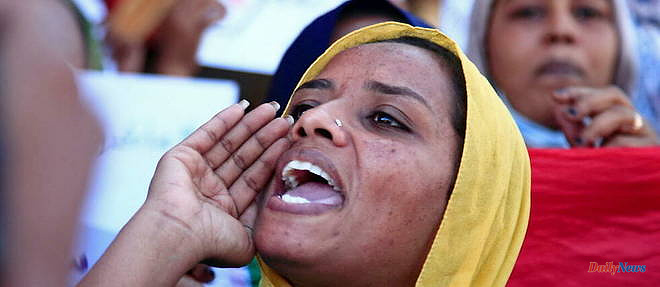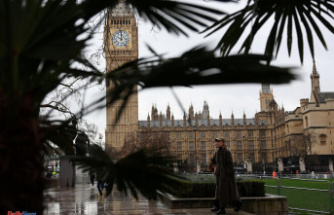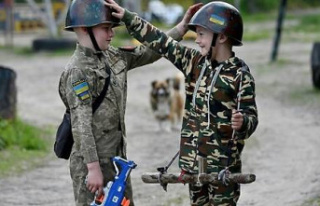Some 25 South Sudanese refugee women were raped south of Khartoum. In Bahri, north of the capital, two Ethiopian servants, abandoned by their employer who had fled the war, met the same fate. To the east, on the grounds of the prestigious Ahfad Women's University in Omdurman, two Ethiopian housekeepers were again targeted. In Nyala, the capital of South Darfur, at least 18 women and girls, often from communities displaced by previous conflicts, have also been raped...
In total, Hala Alkarib, the regional director of the NGO Siha (Strategic Initiative for Women in the Horn of Africa), has identified dozens of cases of rape since the outbreak, on April 15, of clashes between the head of the armed forces. Sudanese, General Abdel Fattah al-Burhane, to that of the fearsome paramilitary militia of the Rapid Support Forces (RSF), General Mohamed Hamdan Dagalo, known as "Hemeti". "There are actually many more victims," warns Hala Alkarib. The Land of the Two Niles indeed has a sad tradition of using sexual violence as a weapon of war.
Since the start of the Darfur conflict in 2003, hundreds of rapes have been perpetrated. "Not a single rape trial has taken place in this region," said Hala Alkarib. The situation is hardly more enviable in Khartoum, where the activist cites a few rare prison sentences for child rape. The inhabitants of the capital have, however, also suffered massively from these abuses. On June 3, 2019, during the bloody dismantling of the revolutionary sit-in which demanded the handing over of power to civilians, dozens of women, of all ages and all social classes, were attacked. Many of them have since remained silent.
"I was 18 and a virgin. Eight men raped me. Since then, it's as if I had lost my value. I haven't told anyone about it. My loved ones could kill me if they found out,” one victim said anonymously. Well aware of the taboos in a society that overvalues the virginity of adolescent girls and unmarried women, Hala Alkarib believes that the rapes committed since the start of the war actually extend to the entire population.
“The first reports come to us from refugees and displaced populations, as the latter have been made more aware of the importance of denouncing this violence when they pass through the camps managed by humanitarian workers. These women are also more resilient after all the violence that has marred their past. Many other victims are still in shock and will need time to report these rapes, if they ever do so,” said the women's rights defender.
From Nyala, the capital of South Darfur, Nahlla Yousif, the representative of the national NGO Elmostagbal for Enlightenment and Development, confirms: “The rapes are not limited to the displaced. They are used as a weapon of war against all women and girls without discrimination. The goal is to generate a sense of shame within society,” she sums up.
The first victims who spoke out systematically accused the FSR militiamen. "Their training is to terrorize civilians," says Hala Alkarib, from Siha. The various movements and armed forces nevertheless have a habit of exchanging their uniforms to cast doubt on their respective responsibilities... From Omdurman, where the FSR are only 200 meters from her home, the historical activist Ihsan Fagiri regrets patriarchal culture that fueled this climate of sexual violence.
"Women's movements made numerous legislative proposals to the transitional government of Abdallah Hamdok between September 2019 and the coup of October 25, 2021. But no one listened to us because these policies had the sole ambition of maintaining in power," accuses the vice-president of the collective No to Women's Oppression. Before calling out: "Combatants are currently using women's bodies as a weapon to win the war. We need the intervention of the international community to put an end to it. »












